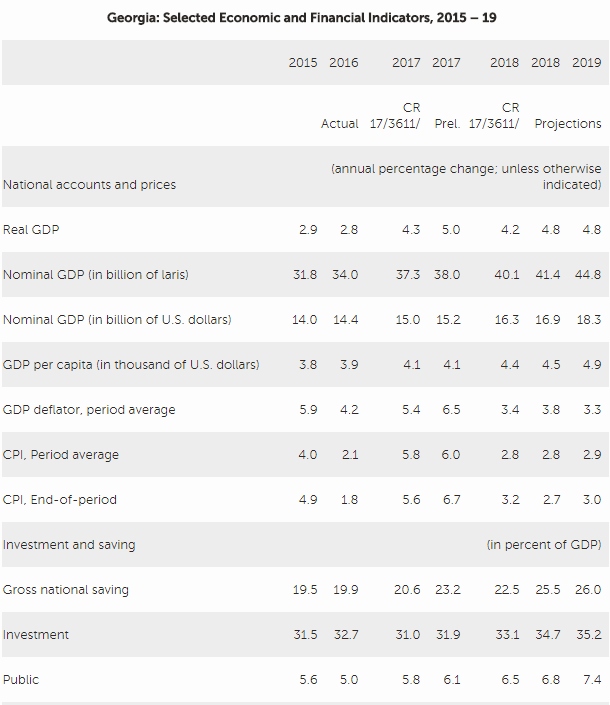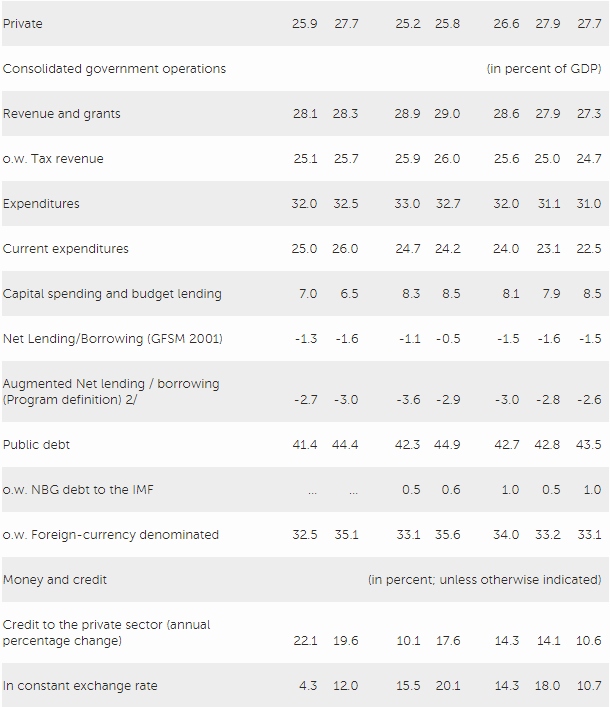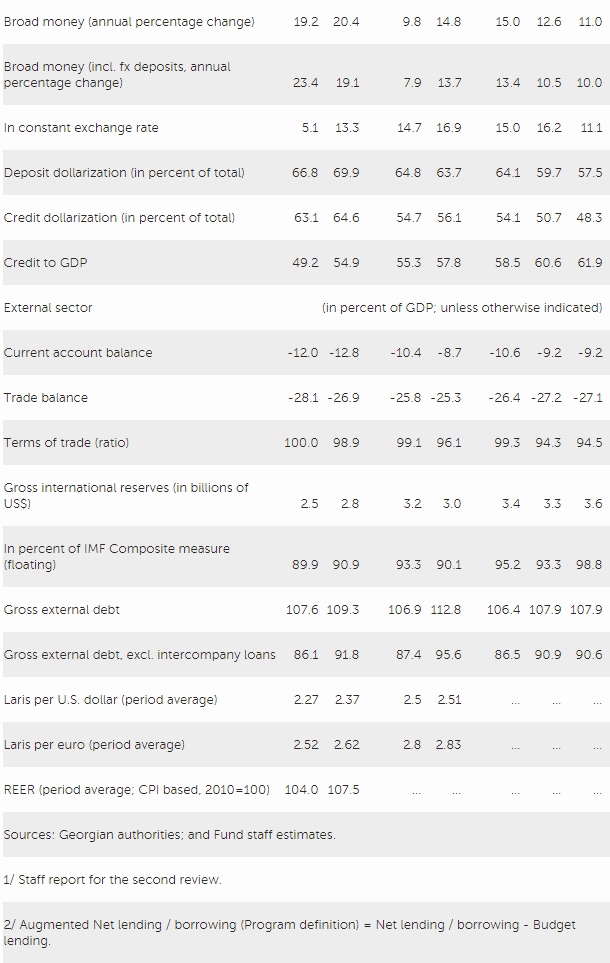IMF Executive Board Concludes 2018 Article IV Consultation and Completes Second Review of Georgia’s Extended Fund Facility
● Economic activity is expected to remain strong, supported by the favorable global environment and firm implementation of program policies.
● The authorities remain committed to maintaining a prudent medium-term fiscal path by enhancing revenue mobilization and increasing efficiency in spending.
● The monetary policy stance is appropriate to bring inflation toward the target by the end of 2018.
On June 27, 2018, the Executive Board of the International Monetary Fund (IMF) approved the completion of the second review of the three-year Extended Fund Facility (EFF) arrangement for Georgia. The EFF was approved on April 12, 2017 for an of SDR 210.4 million (about US$285 million or 100 percent of quota at the time of approval of the arrangement)) to support the authorities’ economic reform program.
The Executive Board’s approval allows for an immediate purchase of SDR30 million (or about US$ 42.25 million). The remaining amount will be phased over the duration of the program, subject to four semi-annual reviews.
The Executive Board also concluded the 2018 Article IV Consultation with Georgia, on June 27.
Following the Executive Board discussion, Mr Tao Zhang, Deputy Managing Director and Acting Chair, said:
Georgia has made notable progress under the IMF-supported program. All end-December quantitative performance criteria were met, most with significant margins, while most structural benchmarks have been implemented.
Economic growth has been stronger than initially envisaged, inflation has declined, the fiscal and external positions have improved, and public debt continues to decline. Important progress has also been made in implementing the structural reform agenda. Although risks to the outlook are balanced, Georgia remains vulnerable to external shocks, including from market volatility in major trading partners. Prudent macroeconomic policies and implementation of structural reforms are critical to address remaining vulnerabilities and promote higher and more inclusive growth.
Fiscal policy will remain slightly contractionary in 2018. Tight control of current spending and higher fiscal revenues, supported by improved economic activity, will be used to refund additional VAT credits, increase capital spending, and narrow the fiscal deficit. Reforms should continue to strengthen revenue administration, monitor and contain fiscal risks, and improve the fiscal rule.
The monetary policy stance remains adequate. The inflation targeting framework, supported by the floating exchange rate regime, has served Georgia well, and efforts to strengthen the framework should advance. The central bank should continue close monitoring of price and wage pressures, and monetary and financial conditions, to support an adequate monetary stance.
Financial sector reforms under the program have strengthened financial supervision and regulation. However, Georgia’s crisis management framework needs to be brought in line with best international practices, including by improving crisis management procedures and the frameworks for bank resolution and emergency liquidity assistance.
Growth-enhancing structural reforms have been initiated and should be accelerated to foster private sector-led activity over the medium term. Advancing reforms to scale up infrastructure spending and improve education and competitiveness are key to promote sustainable and inclusive growth.



Source: International Monetary Fund
- 338 reads
Human Rights
Fostering a More Humane World: The 28th Eurasian Economic Summi

Conscience, Hope, and Action: Keys to Global Peace and Sustainability

Ringing FOWPAL’s Peace Bell for the World:Nobel Peace Prize Laureates’ Visions and Actions

Protecting the World’s Cultural Diversity for a Sustainable Future

Puppet Show I International Friendship Day 2020

